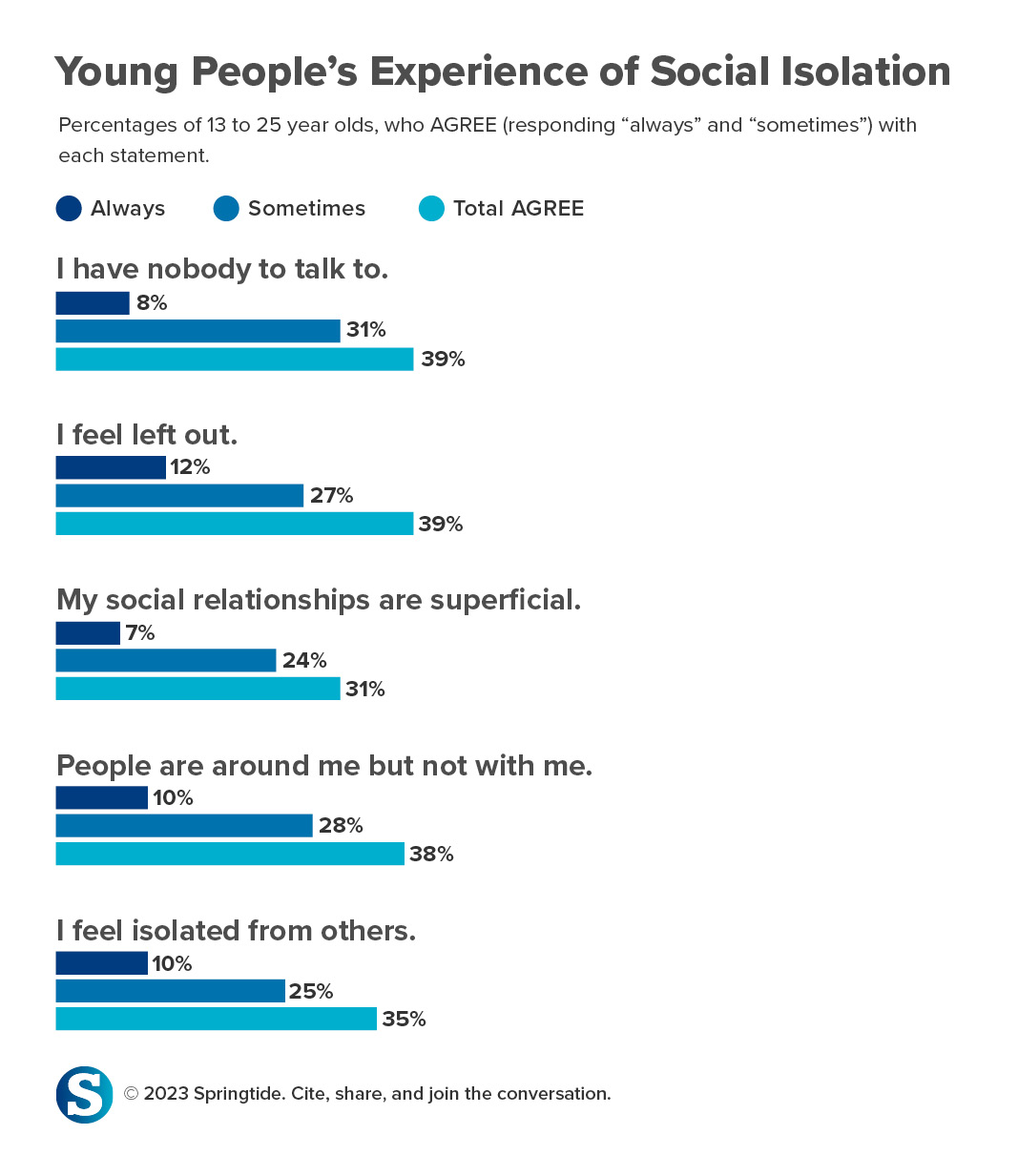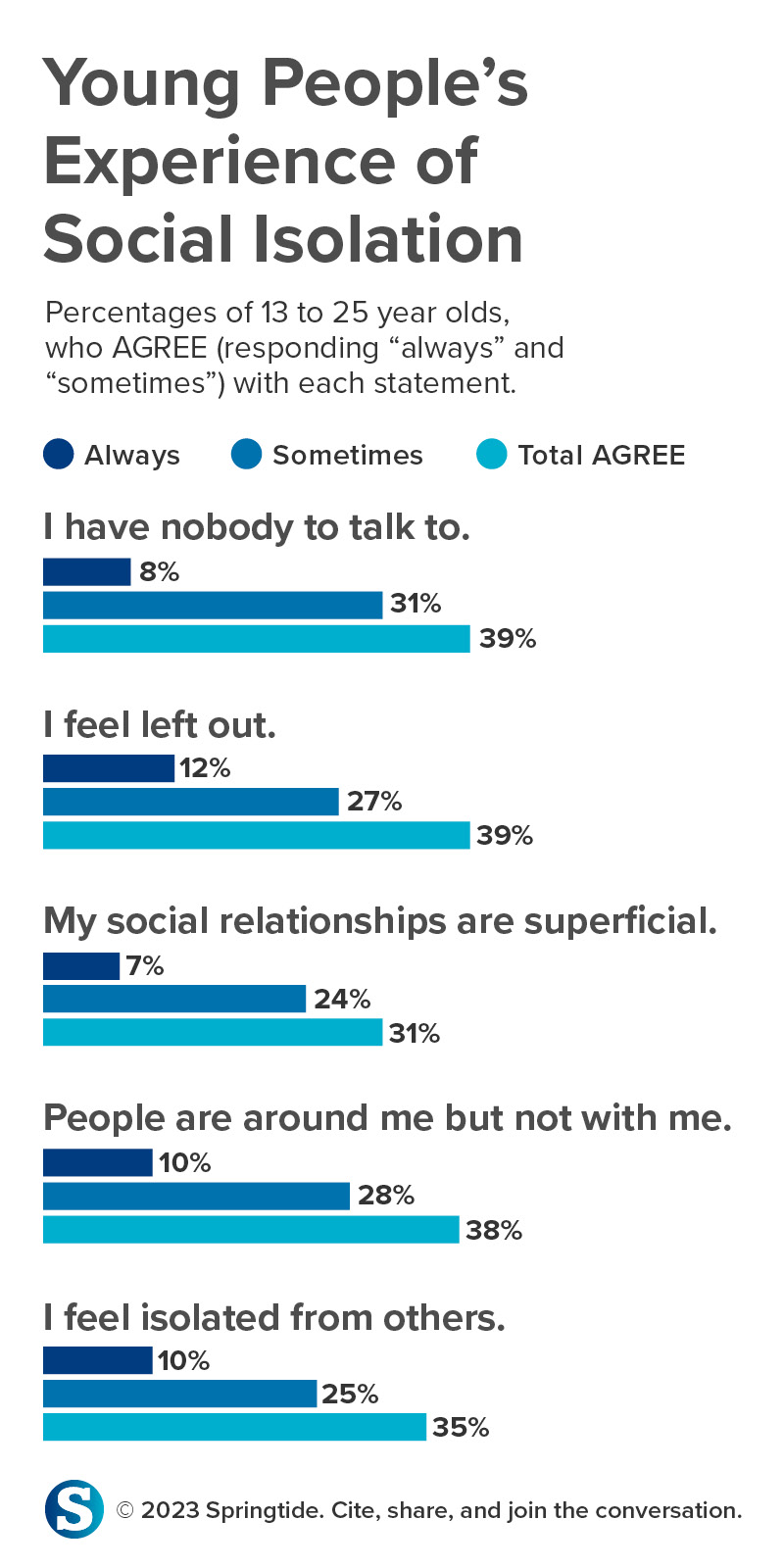
4 Ways to Instill Belonging for the Holidays
Our data show that while not always connected, young people’s experience of social isolation closely mirrors that of loneliness, which can have a tremendous impact on their mental health.


While the holidays often present opportunities for fellowship and togetherness, they can magnify feelings of disconnection for some young people. Disrupted schedules, time away from school, and separation from friends can cause young people to experience isolation and an increase in the stress they may normally feel from day to day.
Yet with an intentional approach, adults can help young people feel included, supported, and valued during the holidays. Whether you’re a parent, family member, or someone who is simply involved in a young person’s life, here are three ways you can help young people feel a sense of belonging during “the most wonderful time of the year”:
-
Make time to connect with the young people in your life.
Our data show that having meaningful relationships with trusted adults can greatly reduce feelings of loneliness and isolation in young people. Family gatherings can sometimes be a bit chaotic, so consider reaching out to the young people in your family ahead of time to plan time for one-on-one conversations or for a holiday activity you can do together.
If you won’t be together for the holidays this year, send a text for a quick digital connection. If multiple members of the family or community will be elsewhere, plan time to connect over zoom or video chat – spending that time doing a fun game or other activity meaningful to you could be a way to create a new tradition for the group.
-
Be intentional.
In interviews, young people told us that adults can help them feel a sense of belonging by actively listening and remembering what they’ve said. During the holidays, this could translate into remembering certain interests or favorite activities and planning events or activities that reflect those stated likes. Or it could be as simple as asking follow-up questions about something they mentioned in a previous conversation. Both signal to a young person that who they are and what happens in their life is important to you, and that you care enough to consider these things.
-
Create new traditions.
Meaningful relationships often contain a mix of shared values and interests. Inviting young people to plan holiday activities that reflect their interests can help them feel more included in the family or community. You could also agree on a new activity to try together or choose a volunteer opportunity that involves causes everyone cares about. Offering a young person a chance to take the lead can help them feel valued.
-
Practice nonjudgment.
Conversations with young people during the holidays present great opportunities to catch up on what’s going on in their lives, particularly if you don’t see them regularly. During these chats, you may hear things you don’t agree with. If you feel inclined to pass judgment when listening to a young person’s stories or opinions, try to ask questions to learn more about where they’re coming from. Even if you disagree with their conclusions or decisions, be clear that any disagreement is not a rejection of them or their standing in your relationship. This will make them feel supported while also modeling how to handle healthy disagreements in a relationship.



